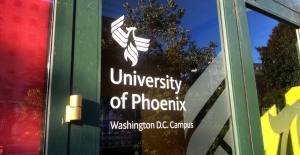Amid coronavirus outbreak, tech keeps students connected — for good or ill

The spread of the coronavirus — which has infected more that 75,000 people around the world and killed more than 2,000 since its outbreak in December — has kicked university officials into high gear as they work quickly to put policies and programs in place to keep students safe. And in the face of this epidemic, technology has become a critical tool to keep students connected to their education and appraised of the latest information about the spread of the disease and what steps universities are taking to ensure their campus communities remain healthy.
First appearing in Wuhan, China, at the start of December, a new strain of the coronavirus, SARS-CoV-2, has now spread to more than two dozen countries, including the U.S., triggering the World Health Organization to declare a world health emergency earlier this month. Quarantine protocols and travel bans have also been implemented as the global community works together to contain the virus, but for many international and U.S. students, the threat of disease has disrupted their ability to go to class and continue their education.
At New York University’s Shanghai campus, spring semester classes were set to begin on Feb. 3, but concern that student populations could help spread the disease even faster prompted heath authorities in Shanghai to request universities delay in-person classes until March. Instead, NYU’s classes began last week, but only online. (As of publication, no NYU students are known to have contracted the virus.)
In just two weeks, NYU’s professors worked together to convert nearly 300 classes that were supposed to be taught face-to-face into an online format, restoring access to education for nearly 1000 students.
“An extraordinarily high level of collaboration and coordination has taken place internally among all segments of the university,” NYU Shanghai Provost Joanna Waley-Cohen said in an announcement. “Faculty and staff in both New York and Shanghai, the latter under the most trying conditions, have been working tirelessly to make sure that students’ needs can be met wherever they are.”
Professors used a wide range of digital tools, including online learning management systems, video conferencing tools and messaging platforms, to make sure students can access course materials and communicate with professors.
Keith Ross, dean of engineering and computer science at NYU Shanghai, said that students taking his introduction to computer programming class will watch videos, read from the textbook and complete programming quizzes to learn course material, as well as post to a message board to get answers to questions.
NYU associate professor Aly Rose even plans to teach her dance classes remotely from her hometown of Galveston, Texas.
To help support teachers in this transition to online classes and familiarize them with the features, strengths and limitations of digital teaching platforms and tools, NYU’s Research and Instructional Technology Services, a department that provides technology training and faculty consultation, has hosted a series of online webinars. And educators from outside of the NYU community have also stepped in to help keep instruction flowing.
‘Maximum advantage’
Drexel University professor Scott Warnock, who has been teaching educators how to design online classes for more than a decade, was contacted by an NYU colleague who asked that he help move NYU’s writing classes online. In less than a week, Warnock had assembled an online workshop for his peers and taught them how to migrate their coursework and adapt their teaching styles to the new format.
Although online classes are often implemented to give students more flexibility to pursue education and increase the convenience of going to school, the outbreak of coronavirus has shown just how important technology can be in keeping pathways to learning open during a crisis.
“I think this is one of those chances to leverage technology to be used to the maximum advantage,” Warnock said.
In-person instruction at NYU Shanghai will likely begin in early March, according to the university, but a start date will not be confirmed until officials are assured that it is safe to do so. Classes will then go through a “mixed-mode” phase, when they will be offered both digitally and in-person.
Similar contingency plans are being put in place for international students unable to travel back to NYU’s main campus in New York City because of travel restrictions.
Social transmission
In addition to connecting students to their classes, technology is also being used by universities to update their campus communities and the public on the coronavirus epidemic.
Several universities, including the University of California in Irvine and Georgetown University in Washington D.C., have created landing pages on their websites dedicated to educating students and faculty about the coronavirus and updating them on university policy changes, like travel restrictions. Other information, like how to spot disease symptoms, and what resources are available to students, is also being shared through social media.
Officials at Arizona State University alerted students through Twitter that “a member of the Arizona State University community” — which they say is not a student — has contracted the coronavirus, and have also used the platform to answer students’ questions about the disease.
But social media has also prompted the spread of false information. In a Reddit post, which has now been deleted, an ASU student incorrectly claimed that a class had been canceled over concerns about the spread of the virus. And on Twitter, another student joked about ASU being “#1 in innovation,” for being the first university in the country to have coronavirus on the campus. Shortly after, the student shared another tweet with a fake conversation between her and ASU president Michael Crow, which showed Crow demanding the tweet be deleted before blocking the student.
“Sharing fabricated university communications is a serious matter,” Crow said in an official tweet.
The student may now face repercussions for the post if it is found to be in violation of the student code of conduct.
Party time, not so excellent
At The State University of New York at Albany, students are also using social media to communicate with their campus community, but for a more serious reason.
Students from the university’s Asian American Alliance group said they were outraged after a video of a student-hosted party was posted to Instagram last week, showing a bucket of iced Corona beers next to a person wearing a surgical mask with the caption, “Corona virus isn’t gonna stop anyone from partying.”
In response, the Asian American Alliance created its own Instagram post, requesting that the Dean of Student Office investigate “the illegal student group and related UAlbany students, requiring them to delete this video and to apologize on their Instagram homepage” and to “inform all UAlbany students to stop racism and disrespectful slogans in any situation, especially coronavirus hate crime against Asian students and scholars based on groundless suspicion of virus hosts.”
The university has since condemned the party, calling its theme “distasteful and hurtful and is not representative of UAlbany or its nearly 18,000 students.”




